Four New Endowed Chairs Filled at the Wyant College of Optical Sciences
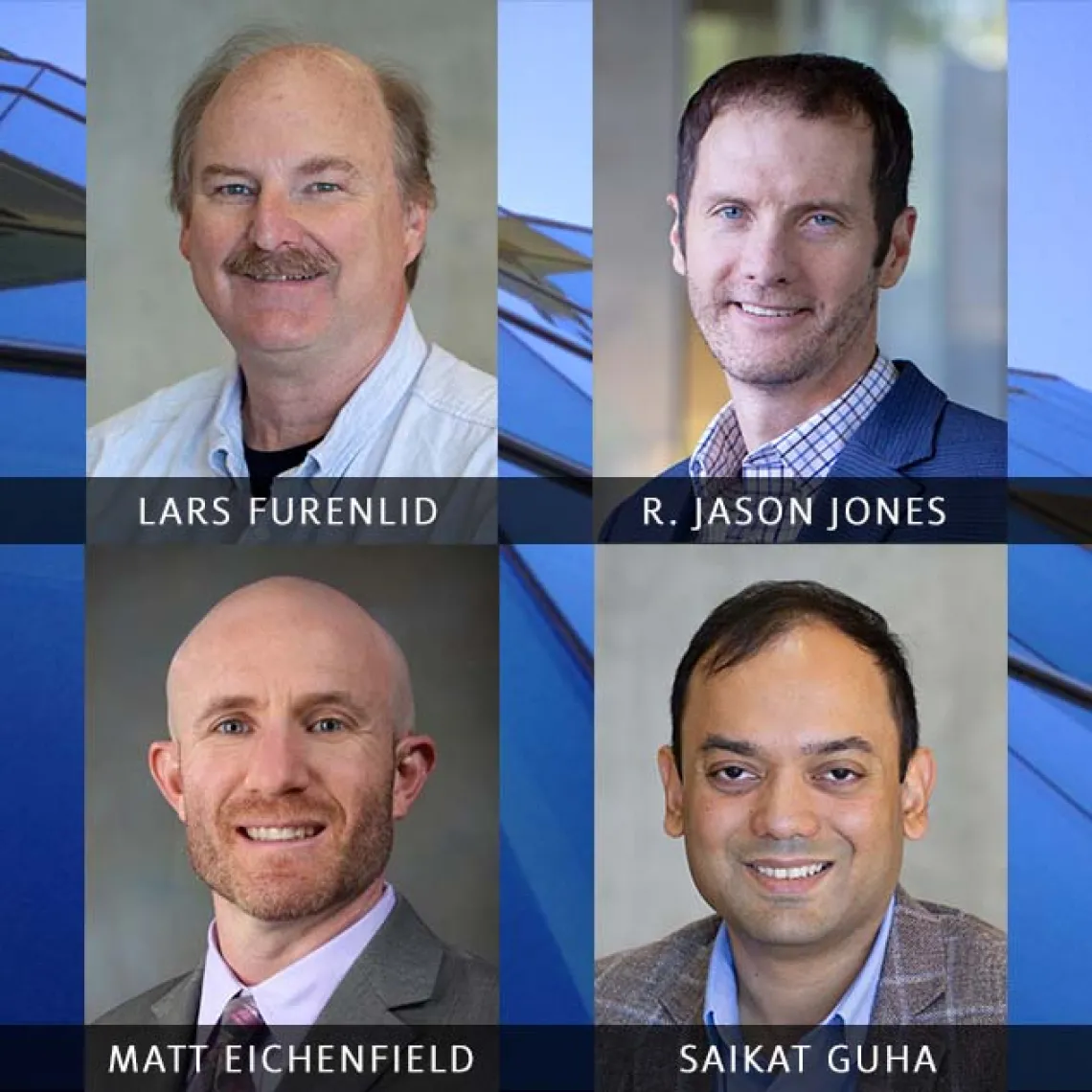


The Wyant College of Optical Sciences is excited to announce that four of the new Endowed Chairs in Optical Sciences enabled by our generous donor community have been filled. These include the first endowed chair established in 2018 by Harrison and Catherine Barrett, the Harrison H. and Catherine C. Barrett Endowed Chair in Optical Sciences for Cancer Imaging, and three more endowments respectively named for SPIE, Dr. John Paul Schaefer, and Prof. Nasser Peyghambarian.
“I continue to be impressed by both the selections of these new endowed chair holders and the donors who created these endowments. Quality research, scholarship and training are fundamental to the College’s growth and success, and endowed chairs signal a strong commitment to these critical endeavors," said James C. Wyant, founding dean, emeritus professor and a principal donor to these new endowed chairs in optical sciences.
These new endowed chairs have all benefited from a $20+ million matching pledge provided by James C. Wyant and his family to expand the faculty, student body and impact of the college. When an endowed chair is awarded to an existing faculty member in the college, the college launches an open search for a new additional faculty member in one of the strategic growth areas of the college.
“We’re all thrilled to see this growth in the college and the remarkable talent that will be contributing to our success,” said Thomas Koch, dean and professor in the Wyant College of Optical Sciences. “It’s fantastic that our outstanding donor support allows us to continue to lead in the ever-expanding applications of optics to improve our lives.”
“We are immensely grateful to our donors who have made a permanent investment in the education and research of optical sciences at Wyant College by funding an endowed chair,” said Kaye Rowan, executive director of development. "We are honored that these donors have entrusted Wyant College to carry forward their vision and desire to support faculty as they engage in more extensive research and creative risk-taking to advance the optics technologies.”
Harrison H. and Catherine C. Barrett Endowed Chair in Cancer Imaging
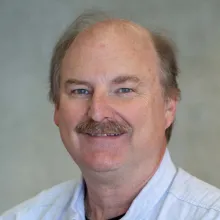
Lars Furenlid, professor of optical sciences, has 34 years of experience working in the field of x-ray and gamma-ray imaging and spectroscopy, with the first 10 years focused on structural biology and the latter 24 years dedicated to biomedical imaging. After completing his Ph.D. training in physical chemistry at the Georgia Institute of Technology in 1988 and joining Brookhaven National Laboratory as a post doc, Furenlid was hired as a staff physicist at the National Synchrotron Light Source at BNL. In an effort to improve detectors for x-ray spectroscopy, he began collaborating with Brookhaven’s Instrumentation Division to develop silicon detectors outfitted with state-of-the-art readout electronics. In 1998, Furenlid moved to the University of Arizona in order to help found the NIH-funded P41 Center for Gamma-Ray Imaging, and switched research direction towards developing methods and instrumentation for biomedical imaging with optical, x-ray, and gamma-ray photons. He currently holds appointments in the Wyant College of Optical Sciences and the Department of Medical Imaging, a joint appointment in the Department of Biomedical Engineering, and is a member of the University of Arizona Cancer Center. He teaches graduate courses in the Image Science field in Optical Sciences and leads an active research group with current projects focused on technology development for molecular imaging of the human brain and heart, as well as novel synthesis methods for contrast agents aimed at detecting and monitoring cancer. In 2013, he was awarded the IEEE Radiation Instrumentation Outstanding Achievement award for his work on detectors. In addition to his research and teaching, he serves as vice chair for research in the Department of Medical Imaging.
Dr. Barrett expressed great enthusiasm for this appointment, noting, “I am very pleased that Lars Furenlid was selected for this chair. He has a long history of applying methods from image science to the development of new clinical and pre-clinical imaging systems. He has clearly established himself as a pioneer in this field.”
“It’s an amazing honor to be named as the holder of the Harrison H. and Catherine C. Barrett Endowed Chair in Optical Sciences for Cancer Imaging. The collaboration between the Wyant College of Optical Sciences, the Departments of Medical Imaging and Biomedical Engineering, and the Arizona Cancer Center is an ideal partnership for leading the development of new imaging tools that will enable physicians to provide individualized patient treatment, as well as training the next generation of scientists to carry forward the discipline of Image Science as established by Prof. Barrett.”
~ Prof. Lars Furenlid
SPIE Endowed Chair in Optical Sciences
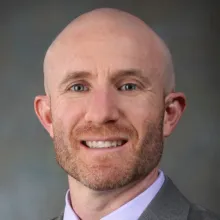
Matt Eichenfield, PhD, joins the Wyant College of Optical Sciences as a tenured associate professor from his position as a distinguished member of technical staff at Sandia National Laboratories. Eichenfield leads programs in multiple instantiations of experimental quantum computing architectures, quantum and classical sensors, photonic microsystems, and microwave frequency communications, among others. Eichenfield will also be the first faculty member in a new Master Agreement established by Liesl Folks, the University of Arizona provost, and Susan Seestrom, Sandia National Labs chief research officer, where he will be positioned to be actively engaged in research across both enterprises. Eichenfield received his B.S. in physics from UNLV in 2004, where he was the Honored Graduate for the College of Sciences. He received his MS, and PhD in Physics from the California Institute of Technology in 2007 and 2010, respectively. His doctoral thesis on cavity optomechanics in photonic and phononic crystals was awarded the Demetriades Prize for Best Caltech Thesis. After finishing his doctoral work, Eichenfield became the first Kavli Nanoscience Institute Prize Postdoctoral Fellow at Caltech in 2010, where he continued work on nano-optomechanical systems and their application to the measurement of microwave frequency mechanical vibrations of oscillators in their quantum mechanical zero-energy states. Eichenfield then moved to Sandia in 2011 as a Harry S. Truman Fellow in National Security Science and Engineering, where he worked on piezoelectric actuation and detection of phonons in optomechanical systems, among other topics. He founded and built the MEMS-Enabled Quantum Systems group at Sandia National Labs from the ground up and has been the group leader since its inception, which now has 20 full-time members, including 5 staff, 6 postdocs, and technologists, graduate students, and undergraduate student interns.
"We are thrilled to see the SPIE Endowed Chair in Optical Sciences awarded to Matt Eichenfield," says SPIE CEO Kent Rochford. "The SPIE endowment program was established to develop talent and advance research. Matt's history of achievements in both – as well as his particular focus on the critical area of quantum – shows he’s a terrific choice for this position, and we look forward to hearing of his team's work at future SPIE events."
“I am honored to be joining the Wyant College of Optical Sciences as the SPIE Endowed Chair in Optical Sciences. SPIE is truly an outstanding institution in the world of optics that does important work in advancing optical technologies and education. I am humbled to have been chosen for this prestigious position, and I will strive to make my work in quantum information sciences and engineering, photonics, and communications technologies positively represent the University of Arizona, Wyant College, and SPIE.”
~ Dr. Matt Eichenfield
“Sandia is excited to kick off its new Faculty Loan Program for Joint Appointments as a way to strengthen relationships with our university partners. This program will allow Sandia scientists and engineers, and professors from academia, to leverage the capabilities of each institution to enhance our collaborative research and ultimately support the talent pipeline to Sandia," says Dr. Basil Hassan, Deputy Chief Research Officer at Sandia National Laboratories. "As one of our first participants, Matt Eichenfield, through his appointment with the Wyant College of Optical Sciences at the University of Arizona, will help blaze a trail for the future in prototyping a successful relationship between Sandia and other academic collaborators.”
John Paul Schaefer Endowed Chair in Optical Sciences
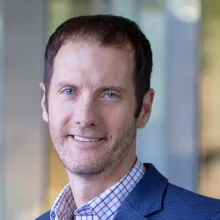
R. Jason Jones, professor of optical sciences, leads a research group at the Wyant College of Optical Sciences in experimental optical physics. His research interests include ultrafast optics, nonlinear light-matter interactions, high-precision optical spectroscopy, and development and applications of femtosecond frequency combs. Recent work focuses on novel architectures for optical atomic clocks and time-resolved dual-comb spectroscopy from the XUV to the MIR, including the first demonstration of its use in studying atomic, ionic, and molecular formation inside laser-produced plasmas. Jones has also been instrumental in the establishment of the annual Winter School and Workshop at the Wyant College of Optical Sciences as a nation-wide event to introduce undergraduates to research and career opportunities in the field of Optics and Photonics. Jones received his PhD from the University of New Mexico in 2001. He continued his work as a research associate at JILA (a joint institute of the University of Colorado and the National Institute of Standards and Technology), where he was supported by a fellowship from the National Research Council, working on the continued development and applications of fs frequency combs. In 2005 he demonstrated the up-conversion of frequency combs into the vacuum-ultraviolet for the first time. He continued to work as a Senior Research Associate of JILA until July 2006 when he left to join the Wyant College of Optical Sciences at the University of Arizona. He is a recipient of the NSF CAREER award and DARPA’s Young Investigator awards and is a member of the American Physical Society and the Optical Society of America. He holds two US patents and has published over 50 peer-reviewed articles.
“It’s an honor for me to hold the endowed chair named after such a visionary leader of our university. John Paul Schaefer’s guidance as president laid the ground work for establishing a culture of excellence in research, and an environment where the Wyant College of Optical Sciences could become as successful as it is today. The chair highlights this legacy, and will inspire me to provide an atmosphere where my students can also grow and ask the important questions at the cutting-edge of research. It’s an exciting opportunity and I’m grateful for the support.”
~ Prof. Jason Jones
John P. Shaeffer, UA president emeritus, noted, "The field of Optical Science has catalyzed revolutionary advances in chemistry, biology, medicine, astronomy and other disciplines that would otherwise have been impossible. The research activities of Dr. Jones hold promise of furthering developments in all of these sciences."
Nasser Peyghambarian Endowed Chair in Optical Sciences
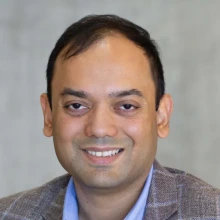
Saikat Guha, professor of optical sciences, heads a research group investigating fundamental quantum limits on optics-based information processing with applications to communications, imaging, and computation, and with specific attention to structured realizations of optical systems that can approach those performance limits. He is currently the Director of the National Science Foundation (NSF) Engineering Research Center (ERC) Center for Quantum Networks, Professor in the Wyant College of Optical Sciences, and holds a joint appointment with the Department of Electrical and Computer Engineering. Guha received the B.Tech. degree in Electrical Engineering from the Indian Institute of Technology Kanpur, Kanpur, India, in 2002, and the S.M. and Ph.D. degrees in Electrical Engineering and Computer Science from the Massachusetts Institute of Technology, Cambridge, MA, USA, in 2004 and 2008, respectively. He was a Scientist with the Quantum Information Processing Group, Raytheon BBN Technologies, Cambridge, MA, USA, from 2008 to 2017. He now holds visiting positions with Massachusetts Institute of Technology (MIT), Raytheon BBN Technologies, and The University of New Mexico. Guha was a corecipient of the 2011 and 2016 Excellence in Engineering and Technology Award, Raytheon Company's highest technical honor. He was also a corecipient of an Honorable Mention at NSA's 2015 Best Scientific Cybersecurity Paper Competition for work on covert communications, and a 2010 NASA Tech Brief Award for his work on quantum illumination. He was the recipient of the 2005 Raymie Stata Award from MIT for outstanding performance as a Teaching Assistant, and the European Physical Society prize for his experimental work as part of the first Indian team at the 29th International Physics Olympiad held in Reykjavik, 1998.
“I am honored to receive this endowed chair, especially one supported by Prof. Peyghambarian and Prof. Wyant – two of the most successful entrepreneurs in the history of our college. I look forward to continuing to learn from, and collaborate with colleagues in all four OSC research specialties, and across campus, and hope to expand the scope and impact of our highly interdisciplinary research.”
~ Prof. Saikat Guha
Prof. Peyghambarian noted, "Initially I envisioned this chair to be awarded to someone that can raise the status of the College considerably in one of the photonics areas. Quantum photonics has become very important with many applications in computing, sensing and networking. Saikat is a world renown leader in quantum photonics and is most suitable to hold this endowed chair"
